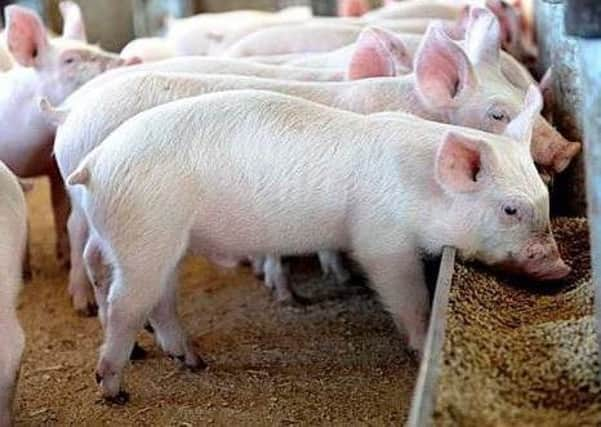Promoting efficient farming


Much of the ‘noise’ in the debate comes from the vegan lobby. Surveys show that 2% of the UK population claim they are vegan (30% of which live in London), 7% of the UK population think they may become vegan but only 14% of vegan meals are eaten by vegans.
An analysis of 80,000 anti-meat messages on social media has shown that 48% are based on concerns over animal welfare, 31% on human health grounds and 21% relate to the environment. Of these, concern for the environment is the fastest growing reason for people choosing vegan or vegetarian foods.
Advertisement
Advertisement
The Agricultural Industries Confederation (AIC) is working with food industry partners to identify a number of objectives to help communicate and promote the positive story of livestock farming and sustainable production of animal products with the aim of demonstrating a united voice along the entire livestock supply chain.
AIC which represents feed manufacturers and supply businesses throughout the UK believes the industry has a great story to tell on health, welfare and the environment. This message needs to be delivered in the digital environment – on social media, using better search engine optimisation to get across positive information about meat and other livestock products.
Effective promotion of a livestock supply chain that acts responsibly and addresses societal and environmental concerns in a direct and measurable manner is required. A proper assessment of the alternatives also needs to be carried out – what are the impacts of a vegetarian/vegan diet on the environment? – how will the countryside be managed in the absence of livestock farming?
Livestock production in the UK and the EU is efficient and well controlled in relation to the concerns which are being raised – the bigger threat comes from imported product from regions which practice deforestation and extensive production systems which are highly inefficient in terms of land and water requirements and produce much greater emissions per kilogram of meat produced.
Advertisement
Advertisement
There are many positive messages which need to be communicated to a wider audience. At a local level the supply trade has played a major part in improving the efficiency of livestock production through precision nutrition - which reduces emissions to air and water. Feed advisors have been trained to help producers mitigate the impact of intensive livestock production on the environment and are influencing behaviour at farm level.
Animal welfare is also benefitting from improved nutrition as evidenced by a major reduction in the requirement for antibiotics to be added to feeds.
Perception is everything in these debates and it is important that all stakeholders engage to claim greater control of the conversations - to get the message beyond the confines of the livestock industry – to consumers and society in general.